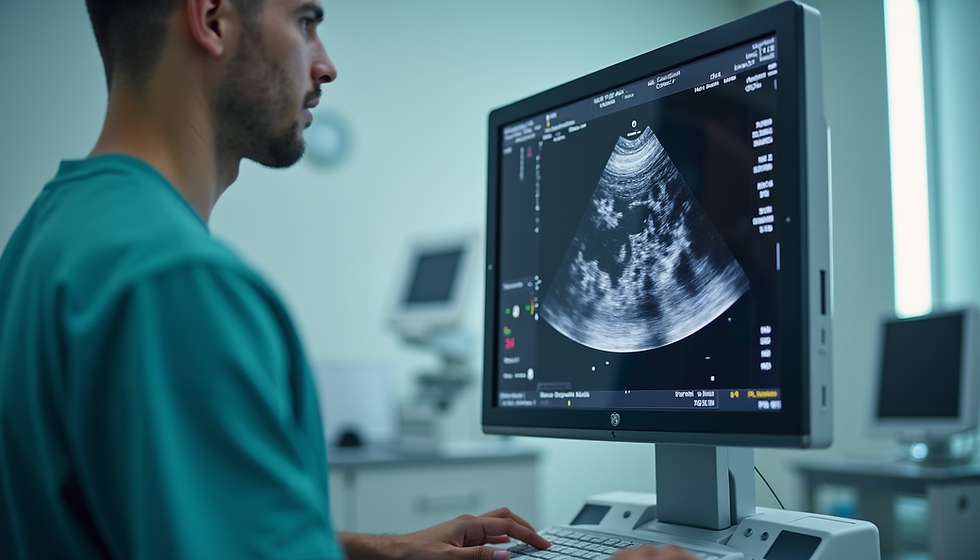Understanding the Possible Causes of Chest Pain and When to Seek Help
- Shane Yole
- Aug 13, 2025
- 3 min read
Chest pain can be unsettling and often raises alarm bells. Its origins can vary widely; some causes are harmless, while others could signal a serious medical issue. Knowing the possible reasons behind chest pain is key to deciding when to seek medical care. In this post, we will discuss the potential causes of chest pain and guide you on when it’s essential to speak with a healthcare provider.

Common Causes of Chest Pain
Chest pain can arise from different sources, and recognizing the underlying cause is important for effective treatment. Here are some of the most common causes:
1. Heart-Related Issues
Heart conditions are among the most serious causes of chest pain. For instance, angina may occur when the heart muscle doesn't get enough blood, typically causing a sensation of pressure or squeezing. A heart attack, known medically as a myocardial infarction, can manifest as intense chest pain. A study found that about 30% of people experiencing chest pain don't recognize it as a typical symptom of a heart attack, which can delay crucial treatment. Accompanying symptoms like shortness of breath, sweating, and nausea often signal that immediate medical help is needed.
2. Gastrointestinal Problems
Gastroesophageal reflux disease (GERD) is a widespread issue that can lead to chest pain, as it causes stomach acid to back up into the esophagus. This can create a burning sensation that closely resembles heart-related pain. Additionally, conditions like peptic ulcers or gallbladder disease can also trigger discomfort in the chest area. Studies report that nearly 20% of adults experience GERD symptoms regularly.
3. Musculoskeletal Causes
Chest pain can also originate from musculoskeletal problems. Muscle strain or injury is common, especially among those who engage in physical activities. For instance, costochondritis, which refers to the inflammation of cartilage connecting the ribs to the breastbone, may result in localized chest pain that might be confused with heart-related symptoms. Those who use heavy lifting or engage in sports might be particularly susceptible.
4. Anxiety and Panic Attacks
Mental health plays a significant role in physical well-being. Anxiety and panic attacks can present as chest pain, which may feel like tightness, along with symptoms like a racing heart and shortness of breath. Reports indicate that panic disorder affects approximately 2-3% of the population, underscoring the importance of understanding how emotional states can affect physical health.
5. Lung-Related Conditions
Conditions related to the lungs, such as pneumonia, pleuritis, or pulmonary embolism, may cause chest pain. These issues often accompany other symptoms like coughing, fever, or difficulty breathing. For example, a pulmonary embolism can occur when a blood clot blocks an artery in the lungs, with symptoms developing suddenly in about 25% of cases. Recognizing these signs can lead to timely medical intervention.
When to Seek Medical Help
Not all chest pain signals a serious condition, but some symptoms require immediate attention. Here are key scenarios when you should reach out for medical assistance:
1. Severe or Persistent Pain
If you encounter severe chest pain lasting more than a few minutes, especially if it spreads to the arms, neck, or jaw, it is vital to seek emergency help. This could indicate a heart attack and should be treated as a medical emergency without delay.
2. Accompanying Symptoms
Chest pain paired with other symptoms such as shortness of breath, sweating, dizziness, or nausea should not be dismissed. These signs can indicate a more serious health issue that warrants prompt evaluation by a healthcare professional.
3. History of Heart Disease
Those with a history of heart disease or risk factors like high blood pressure, diabetes, or a family history of heart conditions should be particularly attentive to any new or unusual chest pain. Regular check-ups and open discussions with healthcare providers about symptoms can facilitate timely care.
4. Changes in Pain Characteristics
If you notice any shifts in your chest pain’s characteristics, such as increased intensity or frequency, it’s wise to consult a doctor. This change could suggest a worsening underlying condition that needs to be addressed promptly.
Final Thoughts on Chest Pain Awareness
Chest pain can result from various causes, ranging from minor to critical. Understanding the potential reasons behind this symptom is vital for making informed decisions about seeking medical assistance. If you experience severe, persistent, or unusual chest pain, especially along with other concerning symptoms, promptly consult a healthcare professional. It is always better to err on the side of caution when it comes to your health. By staying informed and proactive, you can take the necessary steps to protect your well-being.










Comments